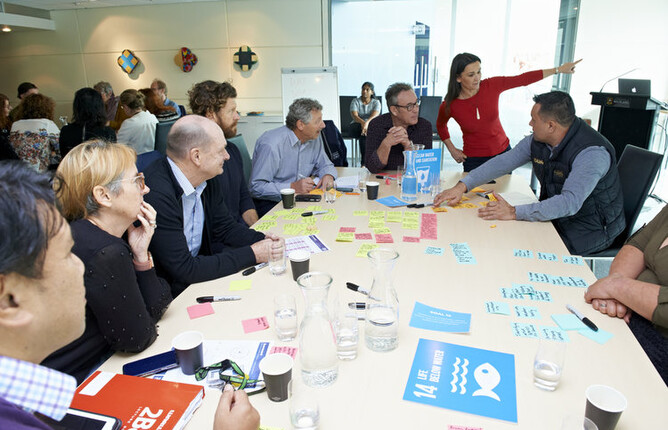Waikato region invited to feedback on wellbeing targets in upcoming community conversations
The people of Waikato are being asked what they think of a set of 17 wellbeing goals designed to help address the big issues facing the Waikato region by 2030.
The Waikato Wellbeing Project, with oversight from the Waikato Plan leadership committee and led by WEL Energy Trust and Waikato Regional Council, is the first of its kind in New Zealand and is designed to create a more environmentally sustainable, prosperous and inclusive Waikato by 2030.
The project will identify specific targets that are relevant to the Waikato context based on the Sustainable Development Goals (SDGs) set by the United Nations in 2015.
Recognising that communities hold a wealth of information about what is important to them and what works for them, there will be a series of community conversations held over October and November to get feedback on the draft targets. To kick off, three days are planned at the Smart Space in the Hamilton CBD between Wednesday 23 October and Friday 25 October 2019.
People can also find out more and book to attend a two-hour-session at www.waikatowellbeingproject.co.nz. Following the Hamilton dates, there is also a session planned in Thames for Thursday 31 October.
WEL Energy CEO, Raewyn Jones said they wanted as many people as possible to share their thoughts on the targets so real measurable goals that will benefit the Waikato region can be identified.
“We’re asking our wider community to help us – are these draft targets going to have an impact on wellbeing? What does wellbeing mean to you? How do we know if our wellbeing is improving? How do we measure it? And what are the indicators and what are the projects and ideas we need to invest in to ensure the Waikato continues to prosper as we face these challenges?” she said.
To develop the menu of draft targets for consideration, the Waikato Wellbeing project team hosted a range of initial consultative meetings with over 150 local leaders and experts to ensure inclusive engagement and non-duplication of effort and resources.
Waikato Plan Leadership Committee project sponsor Eugene Berryman-Kamp said the project team wanted feedback from as far and wide around the Waikato as possible and encouraged people to use the website to provide their feedback if they couldn’t make a session.
“There is an online voting tool and people can also access information about how they can host their own conversations about the goals if they want to. This is an important project for shaping our region and people need to get involved.”
The United Nations SDGs are a blueprint that help governments, businesses and organisations achieve a better and more sustainable future for all. They address challenges affecting all communities worldwide, including poverty, inequality, climate, environmental degradation, prosperity, peace and justice. This project seeks to localise the goals for the Waikato.
The Waikato targets will be SMART (Specific, Measurable, Attainable, Timely and Relevant) and will provide a powerful tool for councils, iwi, businesses and community organisations to inform decision making and take collective action to achieve them by 2030. It is not intended for them to replace any existing goals and targets, but to provide a focus for collaborative action.
“The SDGs are inter-related and our focus is to identify the goals that will most positively impact a whole range of areas and lead to stronger communities, goals that help us navigate change and take advantage of the opportunities in front of us,” Mr Berryman-Kamp said.
The project team has also been engaging with Treasury to ensure that ‘top down meets bottom up’ and ensure measures are selected that will integrate with regional and national reporting.
It is planned to hold an SDG Waikato Wellbeing summit later this year, and to plan for phase two of the project where leads for each of the targets will be supported to develop action plans.
Oversight for the Waikato Wellbeing Project is being provided by the Waikato Plan Leadership Committee, with the project being led by WEL Energy Trust and Waikato Regional Council with support from Waikato Tainui, Trust Waikato, Hamilton City Council, D.V. Bryant Trust, The University of Waikato NAR Foundation and Momentum Waikato.
